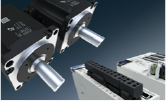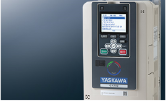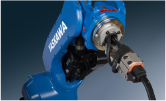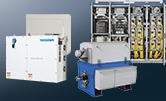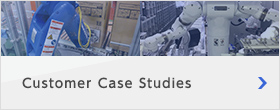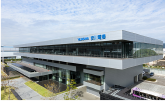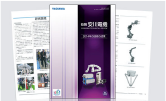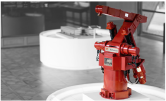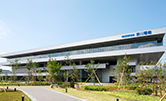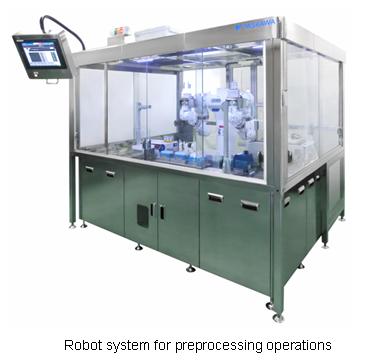 Region
Region
- Products & solutionProducts & solution
- The solution concept i3-Mechatronics
- Servo motors
- AC Drives
- Industrial robots
- System engineering
- Energy saving & creation
- Customer Case Studies
- ServiceService
- CompanyCompany
- About us
- Message from Masahiro Ogawa
- Corporate data
- Our business
- Directors & executive officers
- Global network
- Network in Japan
- History
- Milestones
- Corporate brochure
- Corporate movie

- News & media
- Principles & vision
- Procurement
- Careers
- TechnologyTechnology
- CTO message
- Core technologies
- YASKAWA Technical Review
- Yaskawa technical history
- Intellectual property
- International standards
- Venture investments
- Investor relationsInvestor relations
- IR materials
- Management system
- Message from Masahiro Ogawa
- Vision 2025
- Realize 25
- Yaskawa Principles
- Corporate governance
- Dialogue with shareholders & investors
- Disclosure policy
- Business risks
- Financial information
- Financial highlights
- Quarterly order trends
- Consolidated financial statements
- Consolidated financial forecasts
- Stock & bond information
- Stock Information
- Dividends & shareholder return
- General shareholders meetings
- Analyst coverage
- Rating & bond informationn
- At a glance
- IR News
- IR calendar
- Glossary
- FAQ
- Disclaimer
- SustainabilitySustainability
- Sustainability for the Yaskawa Group
- Message from the President
- Sustainability policy
- Sustainability management
- Value creation process
- Sustainability challenges and targets
- ESG data
- Corporate governance
- Basic approach to corporate governance
- Internal control system
- Corporate governance structure
- Directors & executive officers
- Directors’ compensation
- Policy on cross-shareholdings
- Environment
- Environmental vision & targets
- Environmental management
- Disclosures based on TCFD
- ISO14001
- Green products
- Green process
- Biodiversity
- Energy-saving

- CO2 reduction by products

- Human resources
- Policy on human resources
- Human capital initiative
- Deepening the understanding of Yaskawa Principles
- Diversity & inclusion
- Training and optimal placement of human resources
- Realization of a comfortable working environment
- Improving engagement through dialogue
- Customer satisfaction
- Supply chain
- Social contribution
- Human rights
- Compliance & risk management
- Contact
 Principles & vision
Principles & vision
 Procurement
Procurement
 Sustainability for the Yaskawa Group
Sustainability for the Yaskawa Group
 Customer satisfaction
Customer satisfaction
 Supply chain
Supply chain
 Social contribution
Social contribution
 Compliance & risk management
Compliance & risk management




